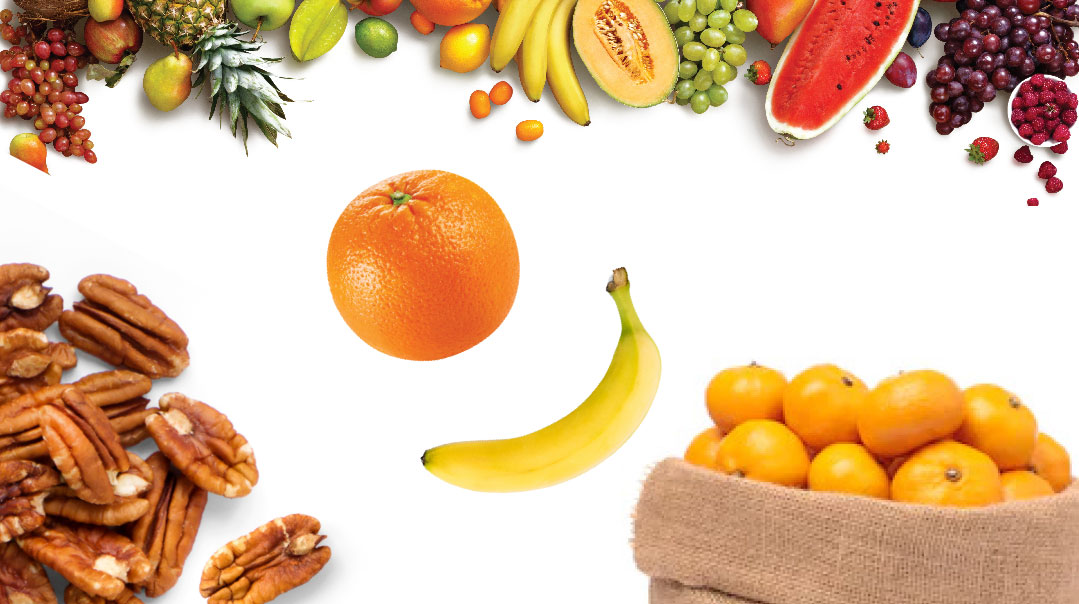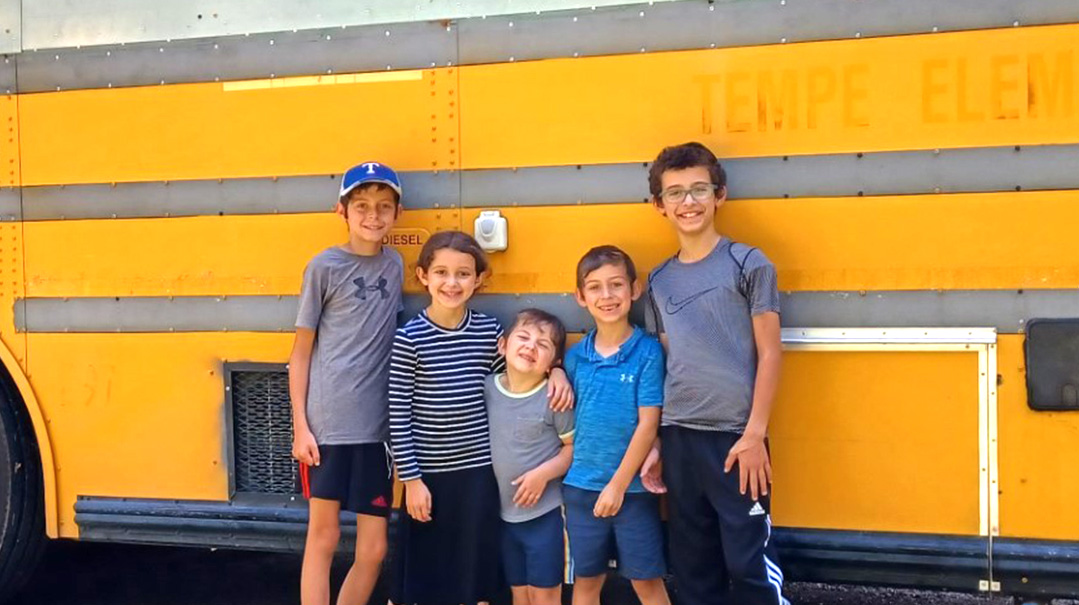Fruitful Memories
| February 5, 2020
Bowls of Berries
Leora Gruen
When we were little, we used to pick little blackberries off the bushes in our backyard. We had to be careful not to get hurt on the thorns, but we persevered. (We didn’t know as much about checking food for bugs as we do now, so find out before you do this.)
We used to pick as many as we could and then save them for Shabbos to eat with our special Shabbos cereal in the morning. Sometimes when I see blueberries or other small berries, it reminds me of those overgrown bushes and the sweet smell of spring.
Orange You Amazed?
Yisrael Rutman
When I see oranges from Eretz Yisrael, it reminds me of the summer I spent harvesting oranges in a kibbutz. We volunteers would go out after breakfast into the orange groves. With clippers in hand and a large canvas bag slung over our shoulders, we climbed ladders that reached about a third of the way up the tree to pick the fruit. The more adventurous among us would leave the ladder and climb up the trunk to the treetops and pick the trees clean. Unless you were a strong climber, though, it wasn’t a smart thing to do, and most of us stayed on the ladders. In fact, one girl fell from a tree and was badly hurt.
The amazing thing to me was the number of oranges on a single tree. Looking at it from below, you only see a fraction of them, since you see only one side at a time and the leaves and branches hide most of the fruit. We’d each come down with bags full of dozens of oranges, and there was often still plenty left near the top.
Taste Of Love
Chaya Rosen
The small cubicle was warm, almost too warm. My baby brother lay in the tall hospital crib with oxygen tubes snaking into his nose, struggling for every breath. My shifts at the hospital usually included lots of comforting, holding, cuddling, and helping to administer medications and inhalation treatments, but now my brother was fast asleep. I quietly opened the door to the small cupboard next to my brother’s crib and extracted a pile of rectangular plastic boxes my mother had stashed there. There was a box of dried mango, a box of bright, dried kiwi slices, and a box of snowy-white coconut cubes mixed with dried cranberries. I took out one small, white cube, made a brachah, popped it into my mouth and enjoyed the sweet, coconutty flavor.
Because Tu B’Shevat can be celebrated even in an isolation room in the pediatric ward, even with my baby brother so sick, even as his lungs worked so hard in his little chest.
Every Tu B’Shevat, I make sure to get lots of special fruits. We enjoy them, thanking Hashem for the variety of delicious and healthy fruits He created. But I also thank Him that we’re all healthy, and enjoying the fruit in our own home, instead of in an isolation room in the pediatric ward.
A Banana On The Seder Plate
Ariella Stern
Has anyone ever told you that a tomato is actually a fruit, not a vegetable? Oh, you’ve heard that one already? Okay, well how about this: Has anyone ever told you that a banana is actually a vegetable? No? Well, that’s probably because it isn’t technically true. But while a banana may not be a vegetable, it does act like one when it comes to brachos. The correct brachah on a banana is actually ha’adamah, not ha’eitz!
I once heard about an adorable way that a certain family remembers that bananas get the brachah of ha’adamah. In the Teitz family, a banana is placed on the Seder plate for karpas! Now I don’t know about you, but I’m a potato kind of girl when it comes to karpas. But since the only real requirement for karpas is that it be a food on which you say ha’adamah, this family uses bananas for karpas!
Fast-forward a few years and a few thousand miles, and I found myself a mother to some young little boys and in a hotel in Israel for Pesach. When we saw that our Seder plate had an unidentifiable food in the spot karpas was supposed to be, we were all a bit reluctant to taste it. (My family has this funny thing about only eating foods that they can identify!) Well, we all looked at each other, unsure of what to do. Then I remembered that I had bananas in my hotel room. I dashed into the room, grabbed a few, and problem solved: That year, my family followed the Teitz minhag and ate bananas for karpas. Bananas to the rescue!
Just one little disclaimer: Although potatoes taste super yum dipped in salt water, bananas… not so much. So although we appreciated the unique minhag that one Pesach, it’s been potatoes as karpas ever since for us.
(Excerpted from Mishpacha Jr., Issue 797)
Oops! We could not locate your form.






